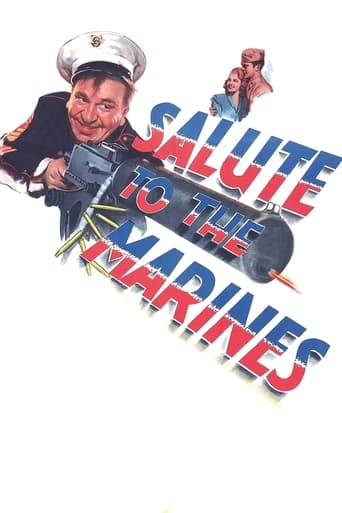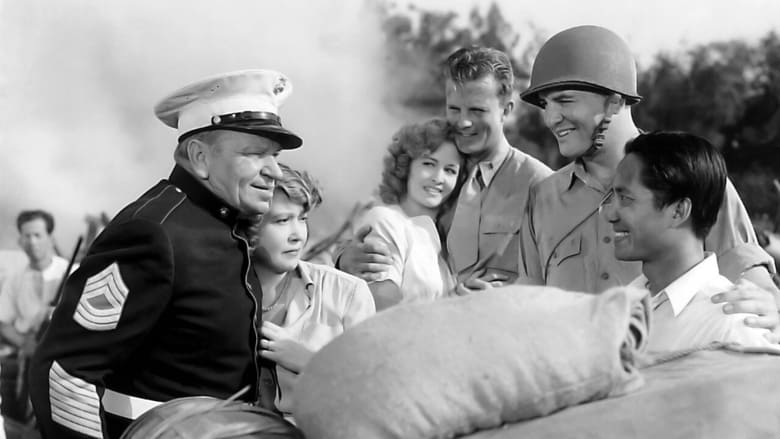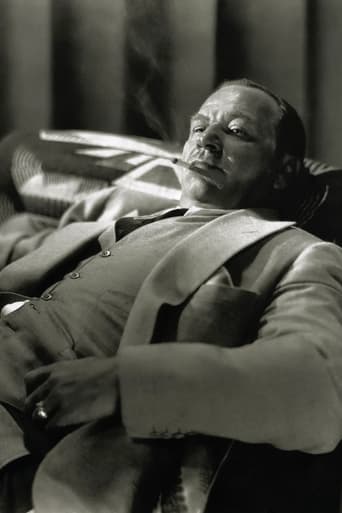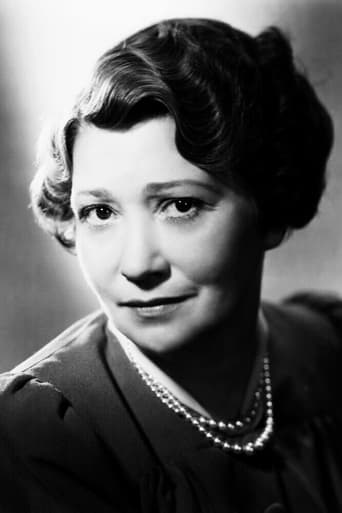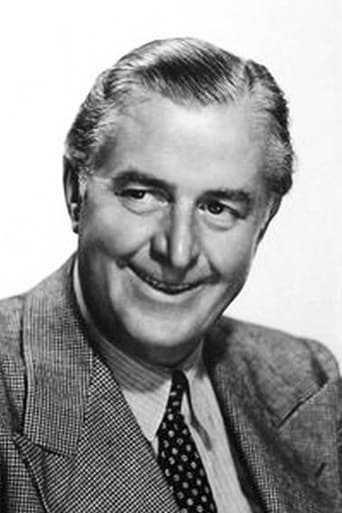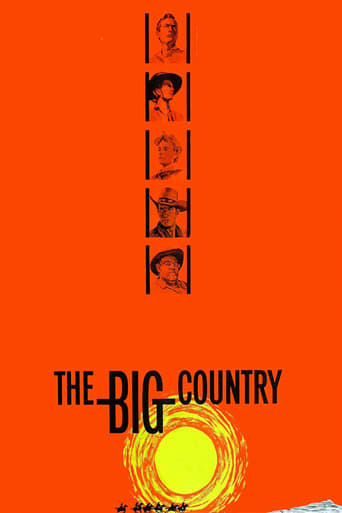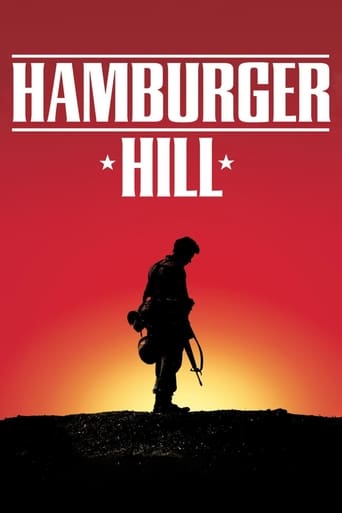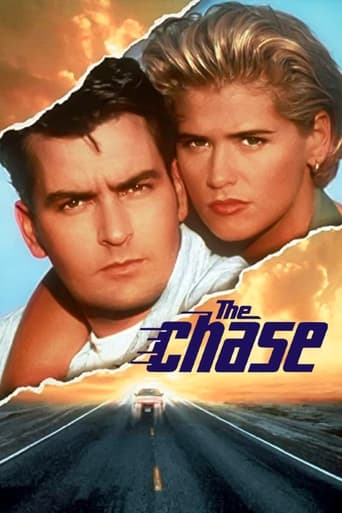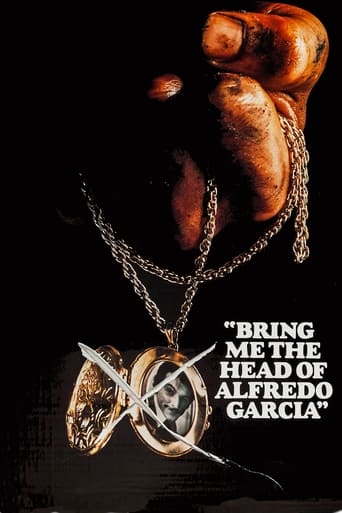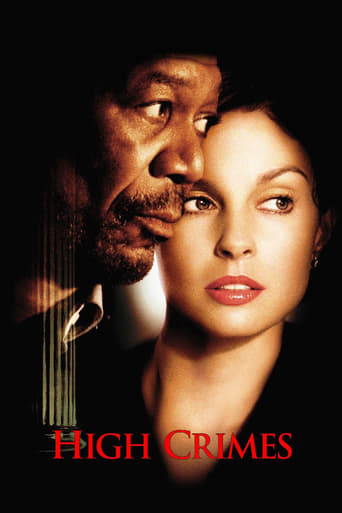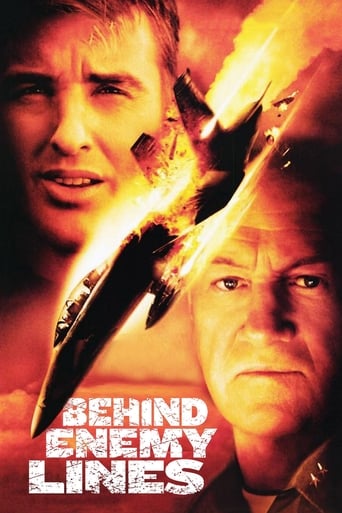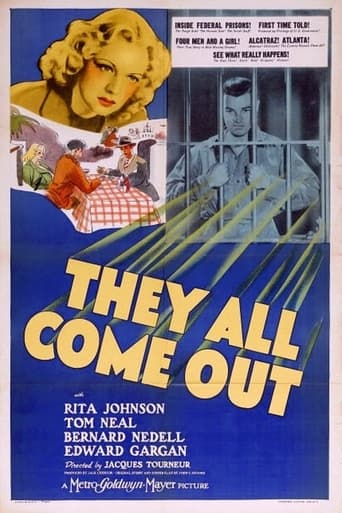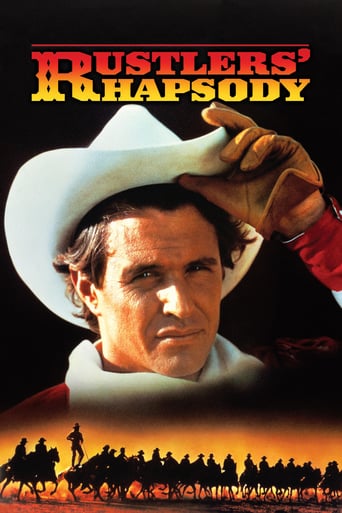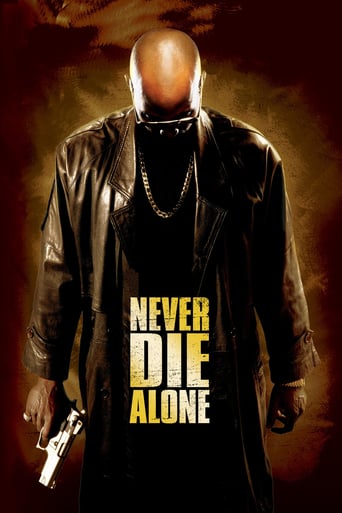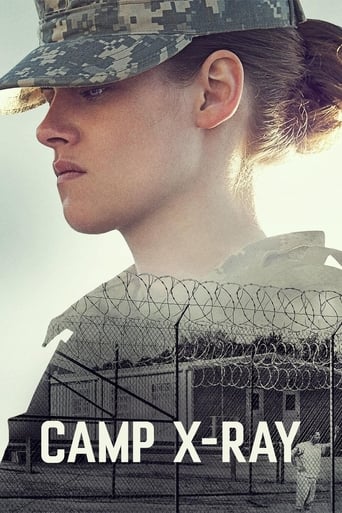Salute to the Marines (1943)
It is a comic book propaganda film which has Beery as a retired USMC NCO who, when the Japanese invade the Philippines, leads a heroic defense, first by strangling a Nazi agent, and then dying in his dress blues uniform while blowing up a bridge.
Watch Trailer
Cast


Similar titles
Reviews
I love this movie so much
One of my all time favorites.
best movie i've ever seen.
The acting in this movie is really good.
First one needs to remember this film was made DURING the war. Anti Japanese resentment following Pearl Harbor and things like the Bataan Death March were running high. And make no mistake, this film is pretty heavy on the anti Japanese message.But that is also one of the things that makes it interesting. It is a glimpse into how people at the time were actually thinking. And while the "dirty japs" were portrayed as squinty, murdering savages we must remember that at the time it wasn't a completely unfair criticism.The film is also unique in that it has a light "comedy" aspect to it. Wallace Beery manages something like an Archie Bunker quality. Probably much needed comic relief given that the news from the war was not always uplifting.But the final thing one needs to keep in mind is the purpose of this film and ones like it. It was designed to unify the nation against a common enemy. And that is how wars are won. And if the worst thing that happens is our enemies are portrayed in a negative light, well that is hardly the worst thing that happens during wars.
Mr. Rap's 2003 review of this movie, its context, and the characterization by Wallace Berry, needs a reply. First, the movie was released in 1943 -- at which time the US was not doing particularly well in the Pacific Theatre. Second, the lead character is a career combat NCO who has never seen combat -- yet his outfit has left for the field leaving him behind. Third, America used the theater as a way of seeing familiar faces (actors/actresses) in roles that many would be unable to fulfill, regardless of patriotism, fervor, or desire. Besides Mr. Rap's comments seemingly being out of context as to what was happening in the film (e.g. drinking and fighting, BUT because he was ashamed at being left behind after 30 years of service), the comments also seem downright petty, juvenile, and mean-spirited ("old," "fat," "pot-bellied" etc.). My assumption is that Mr. Rap has other motivations to examine and overcome, unrelated to the movie, but stimulated by the character of Beery.
"Salute to the Marines" ranks as a first-class example of Technicolor World War II propaganda. The action opens and closes with the rousing Marine Corp anthem. The first thing that we see is Marines splashing ashore from transports, bailing out of a C-47, flying fighters at low altitude, and careening through the jungle in tanks. The formulaic plot occurs largely in flashbacks after the musical opening and ending gambits. Not surprisingly, MGM released "Salute" the same year it released one of its more memorable last stand sagas "Bataan" with Robert Taylor, Lloyd Nolan, and Robert Walker. In both movies, the heroes must destroy a bridge that the Japanese enemy needs to spearhead its advance, and our rough and tough leatherneck heroes perish in the process. Basically, the title tells the tale about a veteran Marine drill instructor, Sergeant-Major Bailey (Wallace Beery of "The Champ") that's spent 30 years in the Corp, but has never acquired first-hand combat experience. If there is anything that Bailey yearns for, it is to get into the thick of the shooting, so he can earn battle medals. As the storm clouds of war huddle on the horizon, his long-time friend and Commanding Officer, Colonel Mason (the great Ray Collins of "Citizen Kane"), dispatches him to train Philippine civilians, an assignment the hard-nosed, blustering hero reluctantly carries out. Thick-waisted Wallace Beery looks a mite long in the tooth to be playing such a vigorous man of action, but he delivers one of his best performances. The dressing down that he gives a Marine about shoelaces during a barracks inspection is a great scene. Look closely and you'll spot future "Dallas" TV star Jim Davis as a Marine private who butts heads with Beery's gruff sergeant-major. Watch Beery during a barroom brawl scene as he drunkenly runs one hand over his head before he wades into a crowd of Merchant Marines and throws punches, eventually knocking everybody out cold on the floor about the time that the MPs enter the saloon. When "Salute" isn't a hymn to the Marines, the filmmakers pay tribute to the valiant Philippines natives. Initially, Beery condescends to these "little fellows." Before long, however, he alters his way of thinking and grows to admire them. Check out the machete scene, and you'll see what I saying. It's a masterpiece of understatement with comedic elements. Beery trains the Phillipinos in the use of the bayonet. A villager introduces our hero to the destructive power of a machete. Berry tests it and agrees with him, so much so that he allows the native warriors to pack them as part of their regulation equipment. The Beery character is inexplicably married to a woman (Fay Bainter) who hates the Corp and pleads with Bailey to hang up his bayonet and live a quiet peaceful life in her community of peace-lovers. Meanwhile, his grown-up daughter Helen (Marilyn Maxwell of "Champion") sympathizes with him. Clearly, this community of anti-war advocates serves as a metaphor for the United States before the Japanese sneak attack on Pearl Harbor. Like other movies of its day, "Salute" chronicles the premeditated nature of the Asian Axis enemy. The Japanese are portrayed as subhuman vermin. The showdown between the captain of the steel-hulled Japanese fishing boat and Bailey is a classic, one-upsmanship encounter. Later, the Nipponese strafe and bomb a church during worship service. They bomb innocent, defenseless women and children. We watch in horror as a white woman running with a baby in her arms falls down between large explosives and lies strewn in the dirt dead. A Japanese tank runs over a Philippine soldier. Were that not enough, a young Robert Blake dies as the hands of the Japanese. Of course, "Salute to the Marines" isn't very politically correct now, because the Japanese are no longer our enemies. S. Sylvan Simon directs the action scenes with lean, muscular economy. "Salute to the Marines" never runs out of steam.
In this leisurely-paced Technicolor flag-waver, grizzled, beer-bellied lout Wallace Beery plays a thirty-year sergeant major stationed in the Philippines just before the war. When he's forced into retirement, long-suffering wife Fay Bainter has to cope with his refusal to adapt to civilian life in their sleepy island village. He antagonizes the peace-loving neighbors with his gross manners and anti-Japanese sentiments, trains the local children in military maneuvers, and gets into brawling confrontations with shifty Niponese sailors. But once Pearl Harbor is attacked and the enemy advances on their town, Beery rallies the villagers to defense and goes out in a blaze of glory.The climactic combat action is a long time coming, since the bulk of the movie is devoted to Beery's fatuous, self-aggrandizing antics. Whether condescending to his native troops (he refers to them as "little fellers" as though they were exotic incarnations of Jackie Cooper) or pouring on the 'aw shucks' geniality to a passel of adoring kids, this slob-king is a grating, grandstanding humbug. (What appeal could this man have possibly held for contemporary audiences? Perhaps as a fanciful role model for home front-bound middle-aged men -- the run-to-seed but still vital codger.)No less phony is the hubba-hubba Marilyn Maxwell as his incessantly smirking daughter; it's tough enough to believe the refined, genteel Bainter could have ever had a booty call with Beery, much less produced so dishy a specimen from such rot-gut sperm.If one can last through all this spurious slop, the final thirty minutes deliver a Johnny-come-lately wallop. As Japanese bombers hover over a crowded church, director S. Sylvan Simon uses rapid-fire editing to build tension to a fever pitch. What follows is a grand scale action set-piece that is eye-filling and surprisingly fierce, weakened only by the unhinged spectacle of the tubby, lead-footed Beery traipsing through brush to single-handedly knock out an enemy machine gun emplacement. The movie seems to be telling us that a regiment of lumbering, dissipated fat men could have shortened the war by years. Fat chance.

